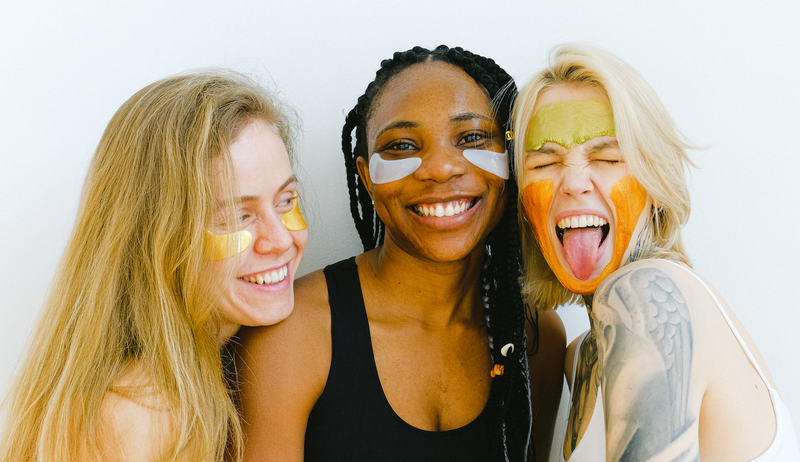Written By Dr. Chantelle Davidson
Pharmacist and Natural Medicines Enthusiast
How Long Does it Take Retinols To Work?

Short answer is: 3 months…
Some people start to notice changes in the skin as early as 6 weeks, but for most people it takes three months and up to a year for the best results. Why?
Because of the way retinols work.
[rather listen than read? 😉 ease into this episode in our plant powered podcast, Kiss My Grass]
Retinols work in three ways.
- They increase the rate of which your outer skin cells grow and multiply. - This takes minimum of 2 weeks to grow a new skin cell.
- They slow down the rate of which our body is breaking down existing collagen - They do this by slowing down the collagen eating enzyme: collagenase. - this takes another 2-3 weeks.
- Over time, retinols also slow down the body’s production of the collagen eating enzyme : collagenase. - This takes 6-8 weeks.

When you combine these three mechanisms of action, you have more skin cells on the out skin, giving back some of that plumpness lost by age, and firmer skin because you have more collagen around because retinols have slowed the rate that the body is breaking down the collagen in the skin.
For this to occur enough to see, well, that takes time. But hey, come on people. If you are old enough to have wrinkles, then you have already learned that, ‘in life, good things take time.’
Why is my skin red, irritated, or flaky from Retinol use?
The key to starting a new retinol routine is to ease into it. Retinol encourages our outer skin cells to ‘turn over’ faster. This means that new cells are made faster, and old cells die faster. Unfortunately if you start your new retinol treatment too fast, too often, then the outer skin cells will die faster than the new ones can be made. This causes red irritated or flaky dry looking skin.
The secret is to allow your skin to become accustomed to the retinol. Start with just a couple times a week, and try mixing in a small amount with a moisturizer. Do this for 2-3 weeks before increasing the frequency of application.
Another culprit is not wearing sunscreen. Retinols sensitize your skin to the sun. The sensitivity will decrease over the next couple if months, but in the beginning, it is very important to wear sunscreen every single day to avoid adding sun irritation to your skin.

Can I use Retinols if I have sensitive skin?
Absolutely. Although you may need to be a little extra careful. Begin by using it only once a week for 2-3 weeks before moving up the frequency to 2-3 times a week. Take it slow. Also, choosing a low concentration retinol, such as 0.025% or even better a natural retinol will still produce results without bombarding your skin with irritating effects of the higher strength stuff. Plus, if you choose a clean plant made retinol, you’ll also get the additive effects of the great skin food that comes along with it. Natural retinols also have essential fatty acids, carotenoids and terpenes that all help skin cells grow plump and strong.

Follow these top rules for safe retinol use to avoid irritated skin:
- Start low and slow. Use a natural plant made retinol or low strength over the counter form a couple times a week while your skin adjusts to the new molecules.
- If you are planning on waxing or going to have a laser treatment, then you must stop using it at least 72 before the treatment. Adding additional irritation of either of these can precipitate blisters!
- Apply your retinols at night. Retinols break down quickly when exposed to sunlight. Also retinols make your skin sensitive to sunlight. Apply at night and wear sunscreen.
- Be care what other ingredients you use retinols with. Benzyl Peroxide is an absolute do not mix with retinols. When used together, they can cause hyperpigmentation! The exact opposite of what you want to achieve with retinol use.
- Don’t use retinols if you are pregnant. This mostly just precautionary. While the chances of absorbing retinols into your blood stream are very low, retinols are very toxic to fetal development, so why take the chance?

There you have it. A quick reference guide to retinol use. If you are interested in more information please check out our You Tube Channel at TresKeikis or our Podcast, ‘We Speak Plants” on Spotify and Apple PodCast.
Take Care for now.
Dr. Chantelle Davidson
CEO and founder of Tres keikis Skin Care


0 comments